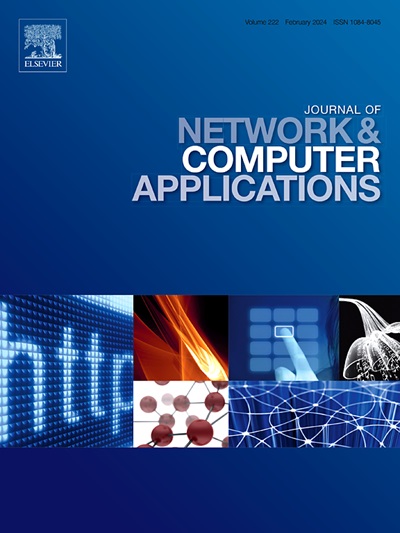Enhanced energy efficiency in UAV-assisted Mobile Edge Computing through improved hybrid nature-inspired algorithm for task offloading
IF 8
2区 计算机科学
Q1 COMPUTER SCIENCE, HARDWARE & ARCHITECTURE
引用次数: 0
Abstract
With the rise of Mobile Edge Computing (MEC) and the increasing number of User Equipments (UE), traditional MEC systems struggle with high UE density. UAVs can assist in offloading tasks from base stations, but their limited resources make deployment and offloading strategies critical. This paper investigates UAV deployment strategies and task offloading policies in scenarios where UE density varies over time. First, we introduce the Maximum Clique in Weighted Graph (MCWG) algorithm, which is designed to calculate the UAV deployment coordinates within a weighted graph. In the task offloading phase, considering the resource constraints of UAVs, we develop a collaborative computation offloading framework involving UE, UAVs, MEC, and cloud servers. Secondly, we propose an Improved Hybrid Nature-Inspired Optimization (IHNIO) algorithm under delay and energy consumption constraints. This algorithm aims to minimize the average delay and energy consumption of UEs in UAV-assisted Mobile Edge Computing. Simulation results show that our approach significantly enhances energy efficiency compared to baseline solutions, with potential improvements in efficiency reaching up to 11%.
通过改进的任务卸载混合自然启发算法,提高了无人机辅助移动边缘计算的能效
随着移动边缘计算(MEC)的兴起和用户设备(UE)数量的增加,传统的MEC系统面临着高终端密度的挑战。无人机可以协助从基站卸载任务,但其有限的资源使得部署和卸载策略至关重要。本文研究了在UE密度随时间变化的情况下,无人机的部署策略和任务卸载策略。首先,介绍了加权图中最大团(Maximum Clique in Weighted Graph, MCWG)算法,该算法用于计算加权图中的无人机部署坐标。在任务卸载阶段,考虑到无人机的资源约束,我们开发了一个涉及UE、无人机、MEC和云服务器的协同计算卸载框架。其次,在时延和能耗约束下,提出了一种改进的混合型自然优化算法。该算法旨在最小化无人机辅助移动边缘计算中ue的平均延迟和能耗。模拟结果表明,与基线解决方案相比,我们的方法显着提高了能源效率,效率的潜在改进可达11%。
本文章由计算机程序翻译,如有差异,请以英文原文为准。
求助全文
约1分钟内获得全文
求助全文
来源期刊

Journal of Network and Computer Applications
工程技术-计算机:跨学科应用
CiteScore
21.50
自引率
3.40%
发文量
142
审稿时长
37 days
期刊介绍:
The Journal of Network and Computer Applications welcomes research contributions, surveys, and notes in all areas relating to computer networks and applications thereof. Sample topics include new design techniques, interesting or novel applications, components or standards; computer networks with tools such as WWW; emerging standards for internet protocols; Wireless networks; Mobile Computing; emerging computing models such as cloud computing, grid computing; applications of networked systems for remote collaboration and telemedicine, etc. The journal is abstracted and indexed in Scopus, Engineering Index, Web of Science, Science Citation Index Expanded and INSPEC.
 求助内容:
求助内容: 应助结果提醒方式:
应助结果提醒方式:


